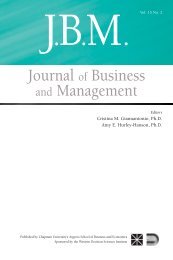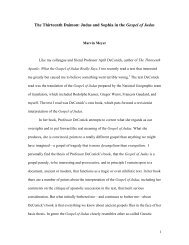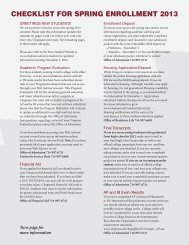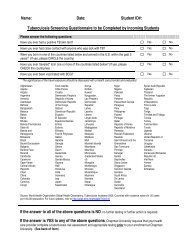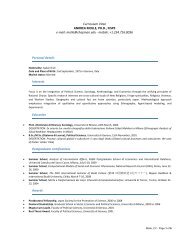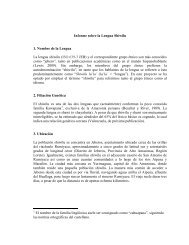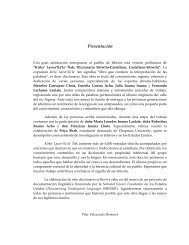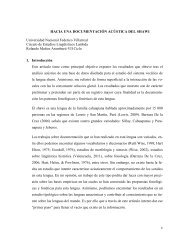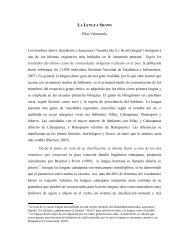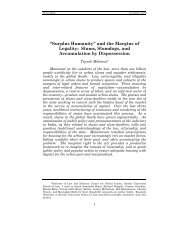Chapman Law Review - Chapman University
Chapman Law Review - Chapman University
Chapman Law Review - Chapman University
You also want an ePaper? Increase the reach of your titles
YUMPU automatically turns print PDFs into web optimized ePapers that Google loves.
Do Not Delete 12/7/2011 2:17 PM<br />
28 <strong>Chapman</strong> <strong>Law</strong> <strong>Review</strong> [Vol. 15:1<br />
most likely possibility because they are declining in number 29<br />
and they are extensively regulated by every state. 30<br />
Finally, the Act has built into it a mechanism to prevent<br />
lenders from circumventing regulation by disguising credit sales<br />
as sales of other products or services. Reports indicate some<br />
fringe bankers have created such schemes in attempt to avoid<br />
state interest rate limits. 31 To prevent this strategic behavior,<br />
the Act clarifies that although the Bureau does not have<br />
authority to regulate a ―merchant, retailer, or seller of any<br />
nonfinancial good or service,‖ 32 this exemption<br />
does not apply to any credit transaction or collection of debt . . . in<br />
which the credit extended significantly exceeds the market value of<br />
the nonfinancial good or service provided, or the Bureau otherwise<br />
finds that the sale of the nonfinancial good or service is done as a<br />
subterfuge, so as to evade or circumvent the provisions of this title. 33<br />
B. Pawnshops as Exchange Facilitators?<br />
One commentator has argued that the Act singles out<br />
pawnshops for a study, which would reinforce the belief that<br />
pawnshops are covered by the Act. 34 The Act calls for a report on<br />
exchange facilitators, 35 and the commentator argues that the<br />
report thus refers to pawnshops:<br />
Among other kinds of fringe financial services, pawn shops as a source<br />
of temporary credit is suspected to be asset-stripping and predatory.<br />
The Bureau must conduct a study on consumers who use exchange<br />
facilitators for transactions primarily for personal, family, or<br />
household purpose to analyze the effect of these firms on consumer<br />
credit. 36<br />
This is almost certainly not right. The Act‘s definition of an<br />
―exchange facilitator‖ is a person who<br />
29 See John Caskey, Fringe Banking and the Rise of Payday Lending, in Credit<br />
Markets for the Poor 26 (Patrick Bolton & Howard Rosenthal eds., 2005) (noting that the<br />
growth in pawnbroking stopped around 1997 and in ―many states, the number of<br />
pawnshops actually declined between 2000 and 2002‖).<br />
30 See generally Oeltjen, supra note 5 (discussing the effect of state regulations on<br />
the pawnshop industry).<br />
31 See Creola Johnson, Payday Loans: Shrewd Business or Predatory Lending?, 87<br />
MINN. L. REV. 1, 20–21 (2002) (reporting that some payday lenders avoided rate caps by<br />
selling advertising space to consumers).<br />
32 Dodd-Frank § 1027(a)(1).<br />
33 Dodd-Frank § 1027(a)(2)(B).<br />
34 TIM FERNHOLZ, NEW AMERICA FOUNDATION, THE CONSUMER FINANCIAL<br />
PROTECTION BUREAU: TOOLS, TRANSITIONS, AND CHOICES 9 (2010), available at<br />
http://pubcit.typepad.com/files/fernholz_cfpb_10-2010_final.pdf.<br />
35 Dodd-Frank § 1079.<br />
36 FERNHOLZ, supra note 34, at 9.



